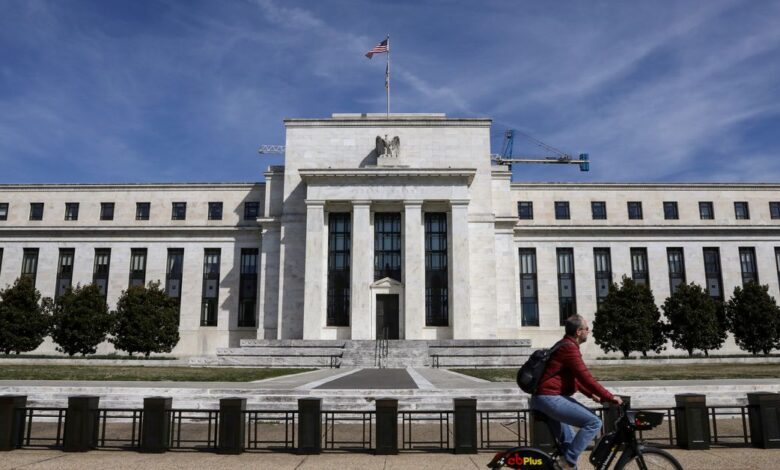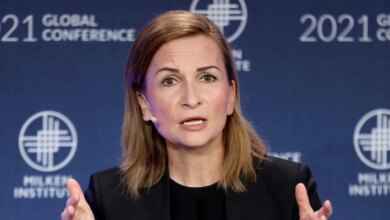Months-long ‘trading blackout’ was urged for Fed officials last year

A person rides a motorbike in entrance of the Federal Reserve Board constructing on Structure Avenue in Washington, U.S., March 27, 2019. REUTERS/Brendan McDermid/File Photograph
Oct 21 (Reuters) – U.S. Federal Reserve officers had been strongly inspired to watch a buying and selling blackout for “a number of months” within the spring of 2020 because the central financial institution was embarking on a course of extraordinary actions to blunt the risk offered by the coronavirus pandemic, based on a memo despatched to all senior officers by the Fed’s ethics workplace.
“In mild of the quickly growing nature of latest and certain upcoming (Federal Reserve) System actions, please think about observing a buying and selling blackout and keep away from making pointless securities transactions for at the least the following a number of months, or till FOMC (Federal Open Market Committee) and Board coverage actions return to their usually scheduled timing,” the memo dated March 23, 2020, mentioned.
That very same day the Fed in an unscheduled motion pledged open-ended purchases of bonds “within the quantities wanted to help easy market functioning,” a transfer that helped lastly staunch the frantic market unload that had worn out a 3rd of the U.S. inventory market’s worth in a month. Since that date the S&P 500 Index has doubled in worth.
Involved about even the “look of performing on inside data regarding Federal Reserve actions and deliberations,” the ethics workplace went as far as to exhort officers to hunt steering earlier than taking funding actions as ordinarily innocuous as redeeming funds from a school tuition financial savings account for officers’ kids.
“If it’s essential to, for instance, redeem a 529 account as a way to pay tuition, or make different vital transactions, please let me know upfront,” the memo mentioned.
The steering went to all members of the Fed’s Board of Governors, senior workers, and to the 12 regional financial institution presidents.
However inside weeks, a few of them had begun resuming transactions, a window that at a look would seem not in step with the sought-for “a number of months” of abstaining from buying and selling.
Eric Rosengren, then president of the Boston Fed, resumed transactions in early Might, his disclosures present. Robert Kaplan, then president of the Dallas Fed, resumed energetic buying and selling – together with in particular person shares and derivatives – someday after the top of April, a Federal Reserve spokesperson advised the New York Instances, though precisely when isn’t clear.
The Instances was first to report on the memo earlier on Thursday.
Each males resigned their posts in September after information studies about their investing actions final 12 months quickly developed right into a full-blown ethics controversy for the Fed. On Thursday, the Fed below the route of Chair Jerome Powell banned particular person inventory purchases by its prime officers and unveiled a broad set of different restrictions on their investing actions.
An investigation by the Fed’s inspector common’s workplace into the buying and selling actions of prime Fed officers, sought final month by Powell, continues to be underway.
A Dallas Fed spokesman, requested in regards to the timing of Kaplan’s inventory buying and selling, mentioned “given the Inspector Common’s evaluation, with which we’re totally cooperating, we’ll chorus from offering further data so we don’t get forward of that course of.”
Reporting By Dan Burns; Modifying by Diane Craft and Daniel Wallis
:





